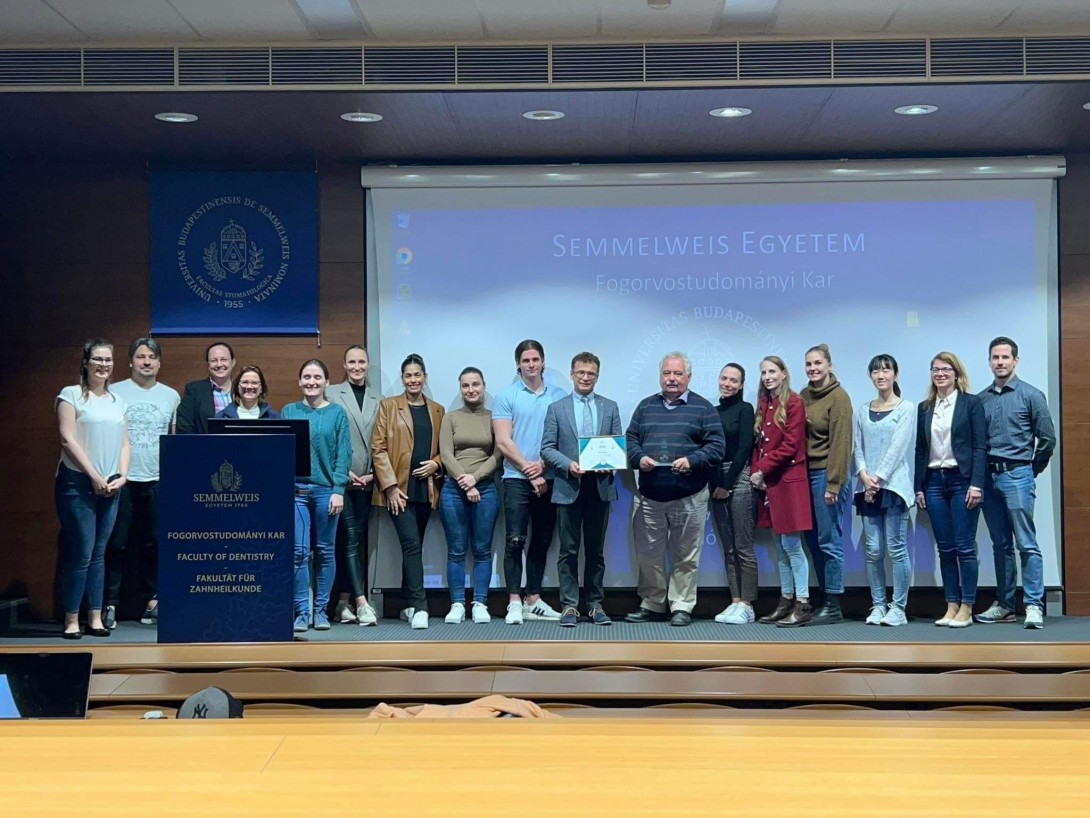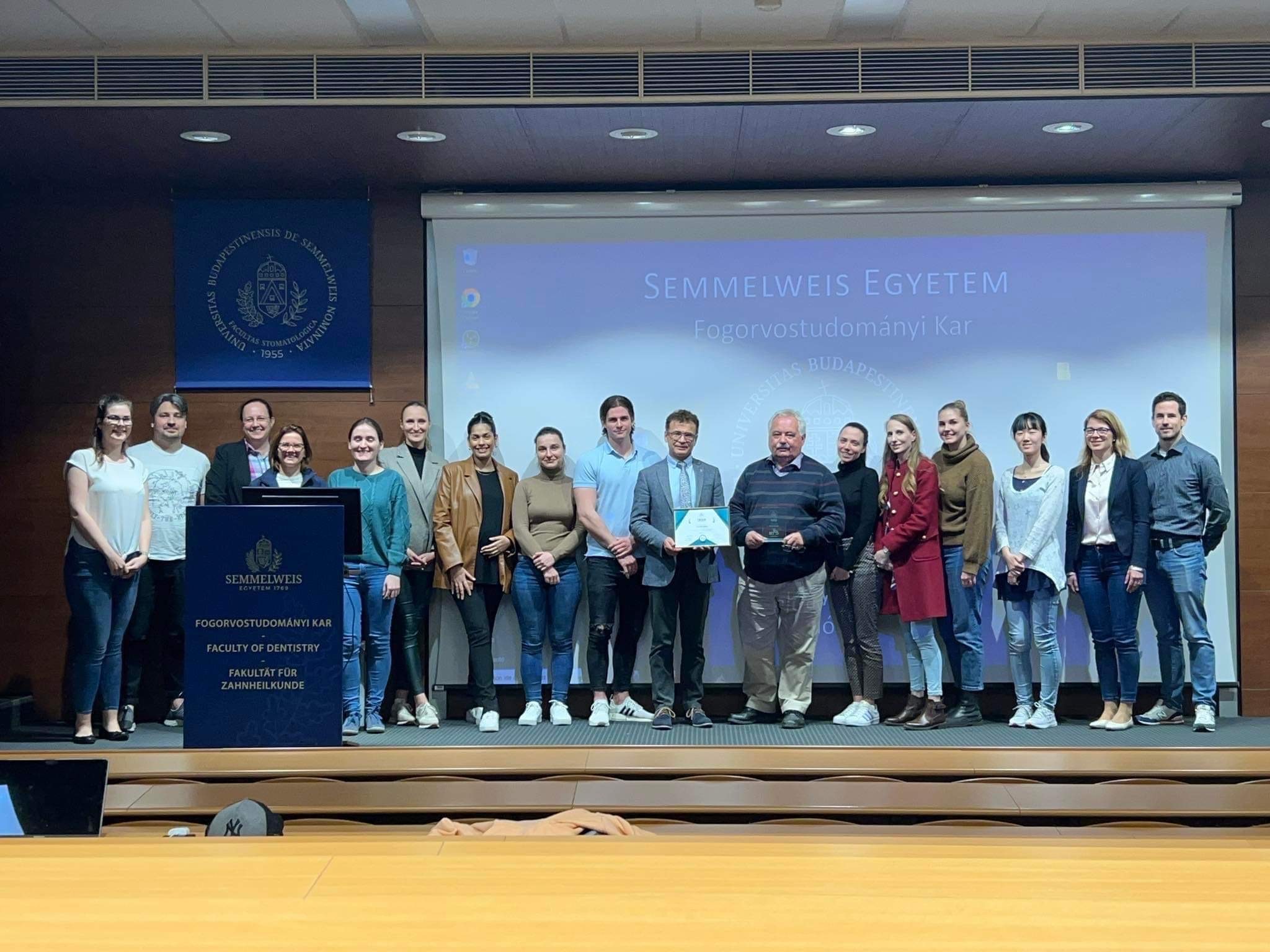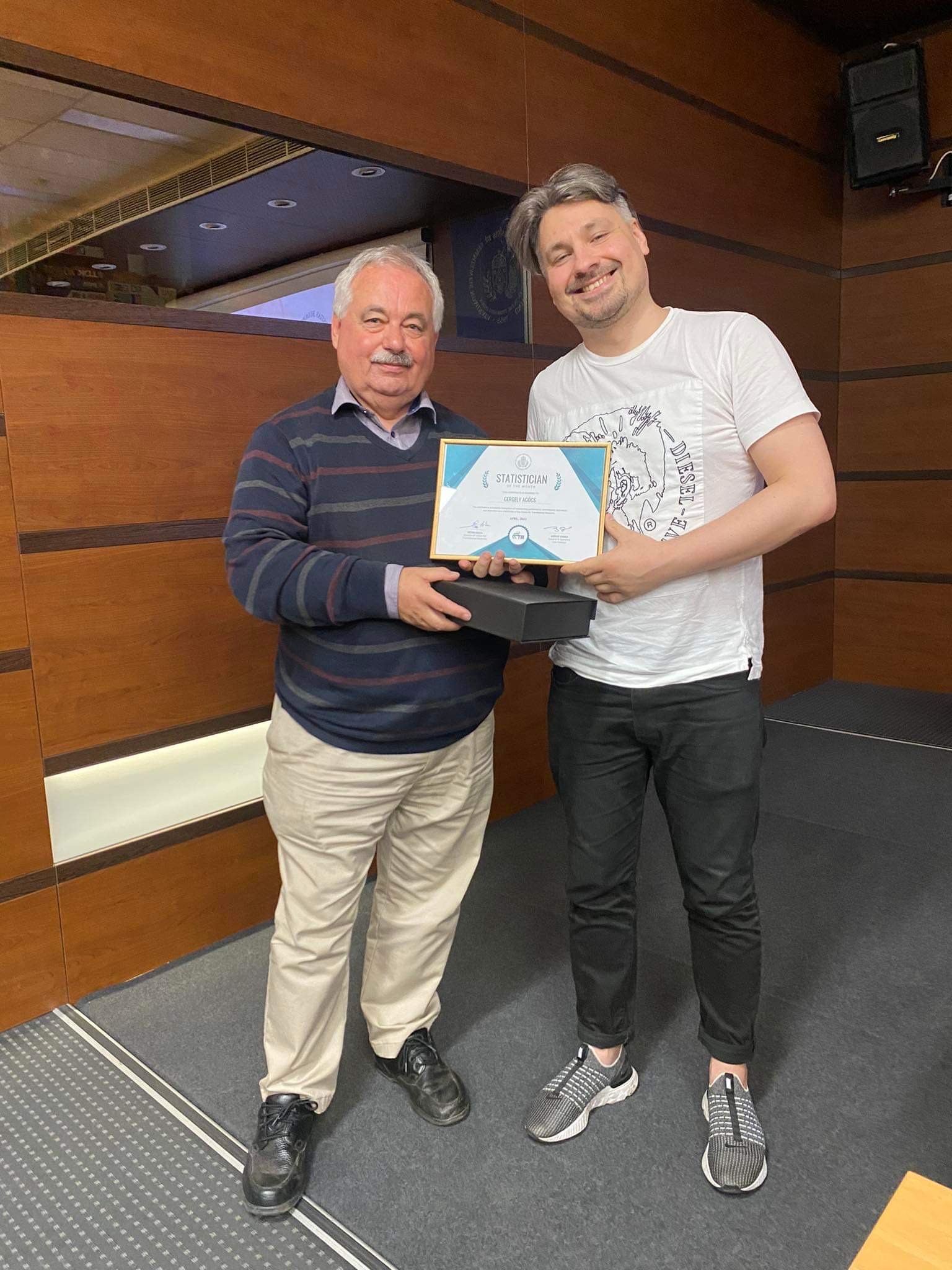
A Transzlációs Medicina Központ büszkén adta át meg az áprilisi Of the month díjakat, amely a kutatás és az oktatás terén elért kivételes eredményeket ismeri el.
A hónap díjazottjai a következők szerint alakultak.
Április elsőéves hallgatója: Körmendy Borbála
Borbálával készítettünk egy rövid interjút is, melyet az alábbiakban olvashatnak angol nyelven:
What motivated you to enter the SE TM program?
I first heard of this opportunity from my supervisors Tamás Horváth MD PhD and Kata Illés MD when I was offered a residency position in Bajcsy-Zsilinszky Hospital. Since I have always been passionate about research but also wanted to progress with clinical work, a program that made it possible to work part time while offering easy-to-access courses was the best thing I could hope to find.
Please share your secrets with us; how did you win this prize?
My secret is to have the most passionate, supportive and kind supervisors who I have been lucky enough to find in Tamás, Kata and Alex. Without their continued encouragement and support I definitely would not have made it this far.
How do you plan your performance for the next months?
My first metaanalysis is luckily already under review at a journal, my plan is to progress with my second project which is a one-arm prospective interventional study and also find a new meta topic.
What are your experiences regarding lectures and group meetings?
Although in the beginning presenting every week for our program director felt a bit stressful, I have come to find group meetings motivating. It is also a fun experience to meet with my fellow students in the group and hang out. As for the lectures I really enjoyed the e-learning sections, while being busy with my projects having some flexibility was really helpful.
Based on your experiences so far, would you recommend this program to those considering participating in a doctorate course?
I would absolutely recommend it. I feel very supported by my wonderful colleagues at the institute, and the framework that is provided by the weekly group and project meetings make it easy to make progress and keep myself accountable.
Április elsőéves témavezetője: Hegyi Péter Jenő
Április elsőéves csoport: Dentistry

Április másodéves hallgatója: Németh Anna
Április másodéves témavezetője: Borbély Judit
Április statisztikusa: Agócs Gergely

Gergelyt kérdeztük a statisztikusi munkáról:
What Are The Roles Of A Statistician?
Sometimes an outsider may imagine that the role of a statistician is simply to carry out routine mathematical operations on a data table. This is indeed part of our job, but taking part in the question formulation and study plan design is far more important. The time invested in planning a study will yield huge returns during the evaluation and interpretation phase of the study. Let me quote Ronald Fisher, one of the fathers of modern biostatistics: “To consult the statistician after an experiment is finished is often merely to ask him to conduct a post mortem examination. He can perhaps say what the experiment died of.”
It is also important to have great communication skills: abstract mathematics and down-to-earth clinical application may seem to be two different worlds. It is the task of the statistician and the clinical professional to learn each others language to achieve maximum quality in scientific research.
What do you think is the most important thing for a statistician to remember when working with data?
It is crucial to keep a balance between high mathematical-methodological quality and practical interpretability. A complex mathematical structure maybe a thrilling challenge to a statistician but can yield overcomplicated outcomes that are hard to interpret. On the other hand, an oversimplified model will most probably fail to detect crucial effects or will simply be outright invalid.
It is also important to always be skeptical regarding the outcomes of your evaluations. Multiple approaches may take up some extra time but ensures that errors, contradictions are detected and eliminated.
How often do you update your skills and knowledge as a statistician?
I am in a lucky position that I belong to a team where continuous learning is a top priority. I am currently attending a course on applied biostatistics, but we have regular in-house statistical trainings organized by the leader of our statistician team, Andrea HARNOS. Additionally, I can turn to experienced colleagues from various fields anytime, we had lots of fruitful discussions with Dániel VERES, Péter HÁRSFALVI and Tamás KÓI – just to mention the three most important advice providers in my recent projects. I hope that I can also provide help to the new members of the statistician team.
There is a lot of data to analyse, which may seem monotonous to an outsider. How would you stay motivated during this process?
Our clinician partners challenge us with ever changing problems and questions, so I can honestly state: there are no two similar cases. The best part of the work is, however, discussing the outcomes with the clinician professionals. The topics are very diverse, and during these discussions we all learn a lot from each other. Finally, the chance that you can contribute to improve or even save lives is always a great motivation.
Április SMS-e: Caner Turan
Április TDK hallgatója: Yasmin Zubeida Al-Gharati
Ezúton szeretnénk gratulálni minden díjazottnak!